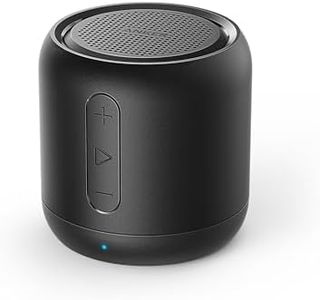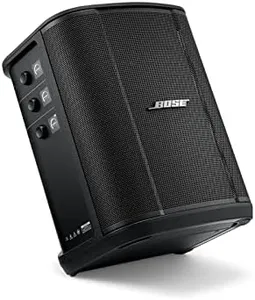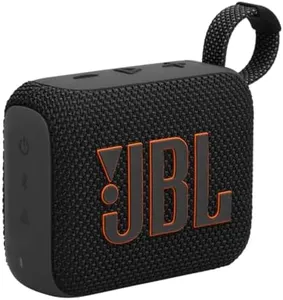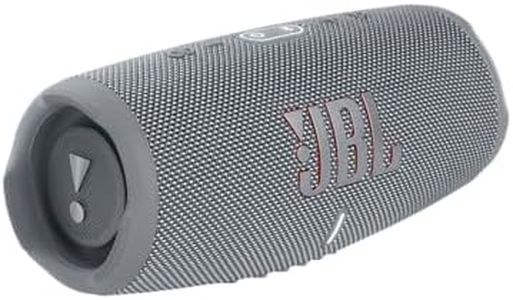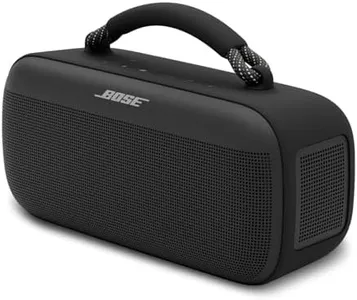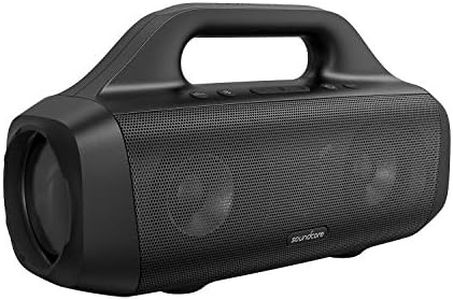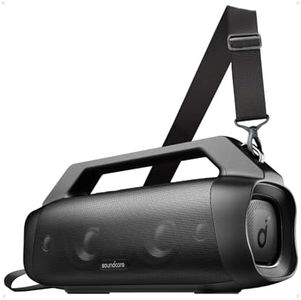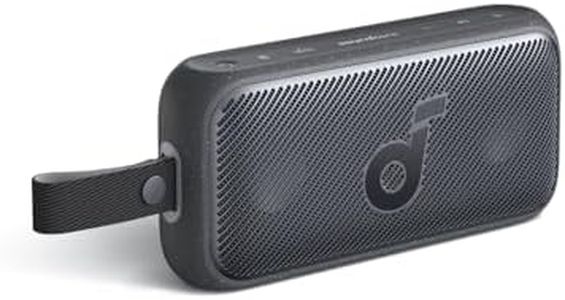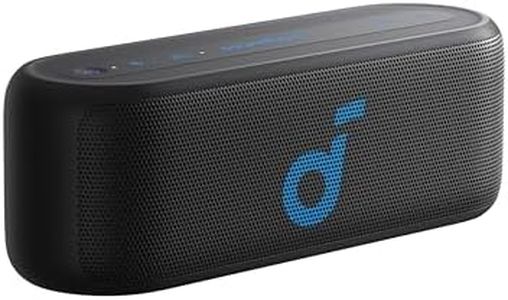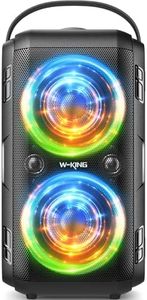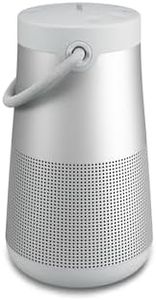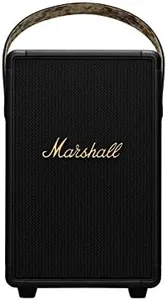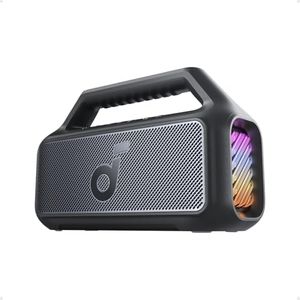We Use CookiesWe use cookies to enhance the security, performance,
functionality and for analytical and promotional activities. By continuing to browse this site you
are agreeing to our privacy policy
10 Best Loudest Portable Speakers
From leading brands and best sellers available on the web.Buying Guide for the Best Loudest Portable Speakers
When looking for the loudest portable speakers, it's important to balance sound power with portability and battery life. The loudest speakers aren't always the best for every situation—sometimes you need something compact for travel, or something with long battery life for outdoor events. Think about where and how you'll use the speaker most often: is it for parties, outdoor adventures, or just personal listening? Understanding your main use case will help you focus on the features that matter most to you.Maximum Output Power (Wattage)Maximum output power, usually measured in watts (W), tells you how much sound energy the speaker can produce. Higher wattage generally means the speaker can play louder without distorting the sound. Speakers can range from under 10W (suitable for personal listening) to over 100W (great for large gatherings or outdoor parties). If you want a speaker for big, open spaces or loud parties, look for higher wattage. For smaller rooms or personal use, lower wattage is usually enough.
Sound Pressure Level (SPL) / Decibels (dB)Sound Pressure Level, measured in decibels (dB), indicates how loud the speaker can get. A higher dB rating means a louder speaker. Portable speakers typically range from about 80dB (moderate volume) to over 100dB (very loud). If you need your speaker to be heard over a crowd or in outdoor settings, aim for a higher dB rating. For quieter environments, a lower dB rating will suffice.
Portability (Size and Weight)Portability refers to how easy it is to carry the speaker around. Larger, heavier speakers often deliver more volume and bass, but they can be cumbersome to move. Smaller, lighter speakers are easier to carry but may not be as loud. If you plan to travel a lot or carry your speaker on hikes, prioritize compact and lightweight models. If you mostly use it in one place, you can opt for a bigger, louder speaker.
Battery LifeBattery life tells you how long the speaker can play music on a single charge. Louder speakers often use more power, which can reduce battery life. Battery life can range from a few hours to over 24 hours. If you need your speaker to last through long events or trips without charging, look for models with longer battery life. For short uses or places where you can recharge easily, battery life is less critical.
Durability and Water ResistanceDurability and water resistance are important if you plan to use your speaker outdoors or in unpredictable environments. Look for features like rugged casing or water resistance ratings (such as IPX4, IPX7, etc.). Higher ratings mean better protection against water and dust. If you’ll use your speaker at the beach, pool, or camping, prioritize higher durability and water resistance. For indoor use, these features are less essential.
Connectivity OptionsConnectivity options include Bluetooth version, auxiliary input, and sometimes USB or memory card slots. Newer Bluetooth versions offer better range and stability. Some speakers allow you to connect multiple devices or pair two speakers for stereo sound. If you want flexibility in how you play music, look for more connectivity options. If you only use Bluetooth from your phone, basic connectivity is enough.
